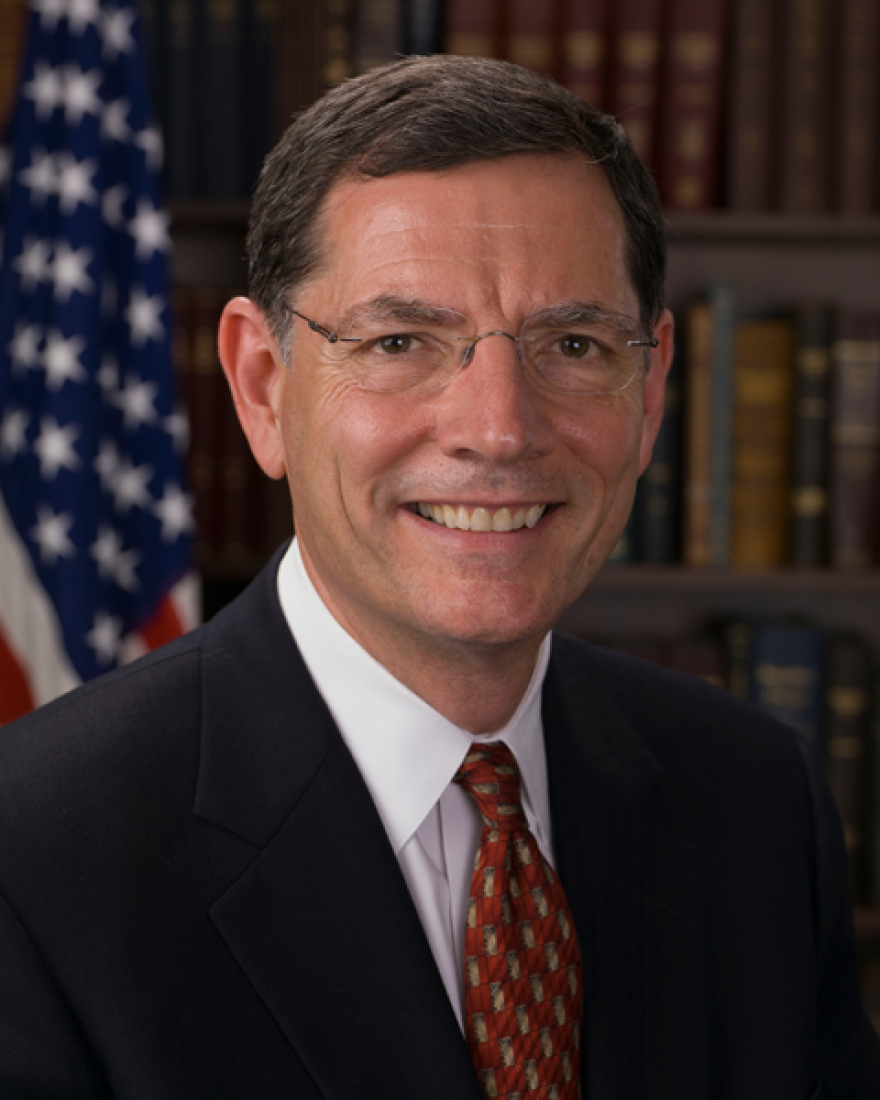Lawmakers in Washington are debating whether to export more natural gas to combat Russian threats to cut off its gas supplies to Europe. Our D-C reporter Matt Laslo has a look at what that could mean for Wyoming’s economy – and environment.
MATT LASLO: Wyoming's junior senator, John Barrasso, made waves when he first came to Washington. And while he's now in the Republican leadership team in the US Senate, he's starting to get brushed aside by many reporters and politicians because of his near singular focus on dismantling what he terms Obamacare. But this week lawmakers of all stripes seemed to have been won over by a proposal he claims will set the US up to be more of a player in European energy markets than Russia.
JOHN BARRASSO: We cannot ignore Russia’s economic dependence on energy and the reality of how energy markets work – remember half of Russia’s economy comes from oil and natural gas. That’s why the United State’s shale gas revenues is already undermining Russia’s negotiating positions with it’s European neighbors.
LASLO: And it's not just Republicans backing Barrasso on his plan to expand natural gas exports. Virginia Senator Tim Kaine - a person floated as a presidential contender here in Washington circles - says he prefers Barrasso’s proposal over Colorado Democrat Mark Udall’s.
TIM KAINE: I feel pretty comfortable with the Barrasso bill. The Barrasso bill is a little more tailored to these national security issues.
LASLO: We'll get back with Senator Kaine later. The popularity of Barrasso's argument seems to have done what energy state lawmakers have vied for all this time: boosting domestic energy production and exports. Energy state lawmakers like Barrasso are using the Russian military's Cold War-esque movements in Ukraine to bolster their argument, the US needs to increase energy exports.
BARRASSO: Friends, this all has come about in the last decade: new techniques, horizontal drilling, directional drilling, all of which makes energy in the United States easier, cheaper to get, and then more available, so it can be more easily exported.
LASLO: For Barrasso, it's simple: attempt to undercut Russia's foothold on the energy market.
BARRASSO: We can send a very powerful signal to the European market that alternate supplies will be available soon. We can undermine Russia’s leverage with its European customers today and undercut Russia’s ability to make so much money off gas exports in the future.
LASLO: But is that the case? And will it help his constituents: everyday Wyoming voters - and the oil and gas industry, which pads his campaigns? Professor Tim Considine teaches energy economics at the University of Wyoming. He says Barrasso's plan is a win for the junior senator's key constituencies.
TIM CONSIDINE: Higher prices will induce additionally drilling and production in Wyoming as long as the companies can get permits on a timely basis to drill on federal lands.
LASLO: Considine adds, expanding exports could mean producers in the state could get what they've been asking for: easier access to all that gas sitting underneath you.
CONSIDINE: Obtaining permits to drill on federal lands, which is a very slow process, and has turned out to be adverse for Wyoming because Wyoming has a very significant share of gas production coming from federal lands so there’s quite a bit of proposed development in Wyoming to drill on federal lands and it’s just sitting.
LASLO: The professor says the current system locks out much of Wyoming's energy producing potential.
CONSIDINE: So a lot of companies are going to other states where gas can be drilled on private lands and they can get in and develop the fields in a matter of months or at most a year.
LASLO: But Mike Tidwell - who lobbies on environmental issues in and around the nation’s capitol - says lawmakers are making a mistake if they think exporting more gas will have an influence on European markets, because any changes to export laws will take years to implement. It's also agreed by all sides that domestic gas prices will increase - which would make US goods a tad more pricey.
MIKE TIDWELL: This is a polluting, climate changing energy that’s best left in the ground and best left in the United States, it’s going to raise prices if we export it and it won’t solve any geopolitical intrigue overseas.
LASLO: Tidwell also says that the U-S doesn't have the relationship with European countries to make Barrasso's proposal pay off.
TIDWELL: Seventy-five percent of the contracts that have already been signed are going to places like India and Japan, so it is simply a pipe dream, to use an apt metaphor, to suggest that this fracked gas, liquefied and sent overseass from the United States, is somehow going to end up in Europe.”
LASLO: Environmental critics aside, Congress seems to be moving towards a plan like Barrasso's. That potential presidential contender, Senator Kaine a former Virginia governor, says there's something afoot that makes the proposal to export more gas palatable for both parties.
Kaine: This is a combination of Ukraine is posing the question in a stark way, but also just the changes in energy issues over the last couple of years is making us realize that this is one potential tool of diplomacy that we should explore.
LASLO: As far as getting the White House on board, Barrasso says the administration is telling foreign leaders across the globe what they want to hear while dragging their feet...at least when it comes to his proposal.
BARRASSO: They said some nice words but didn’t commit to anything. And legislatively, if we get this done, it will show the commitment to the people of Ukraine of our commitment to help undercut the Russian economy.
LASLO: So for now Barrasso's brand has expanded beyond his party. Whether he can actually get his bill through the clogged - and highly partisan - Senate pipe line is still up in the air.
For Wyoming Public Radio, I’m Matt Laslo in Washington.








